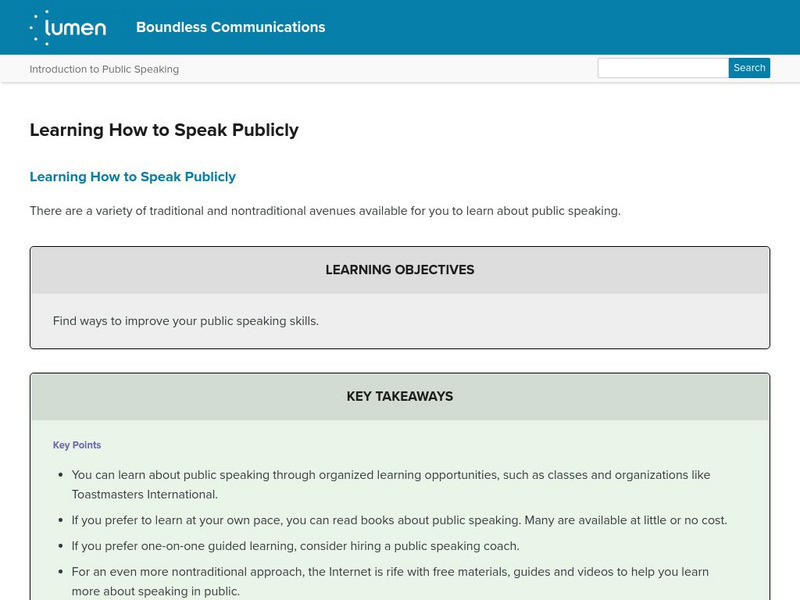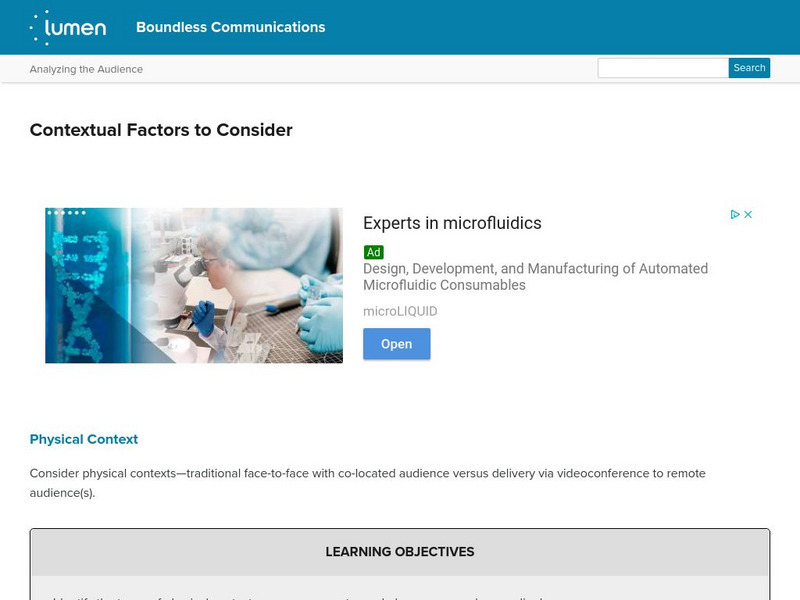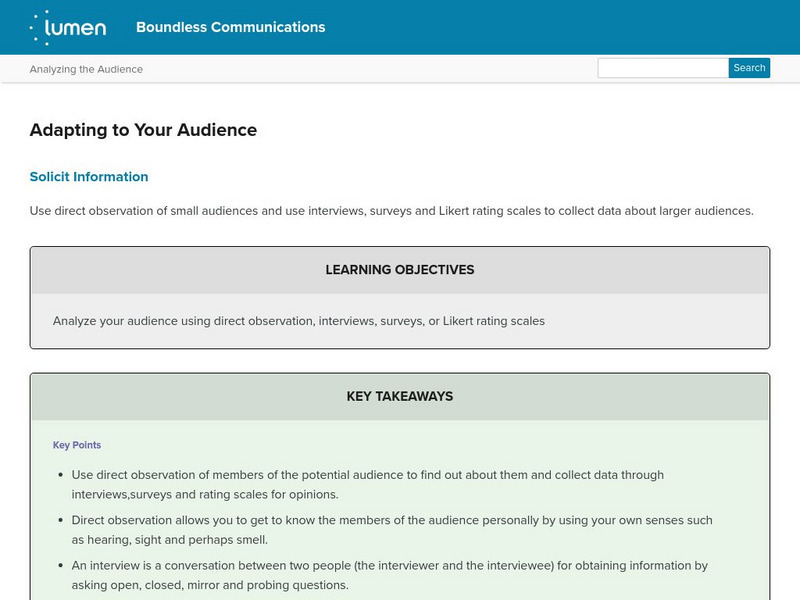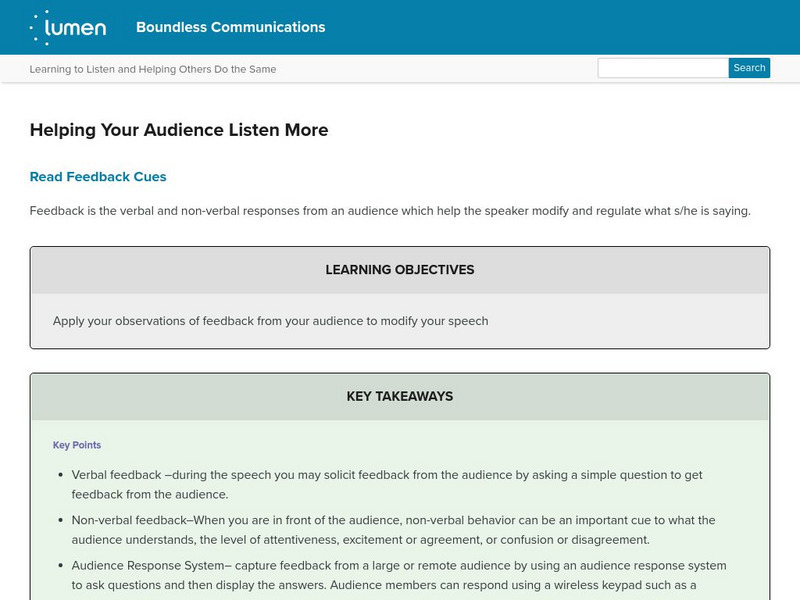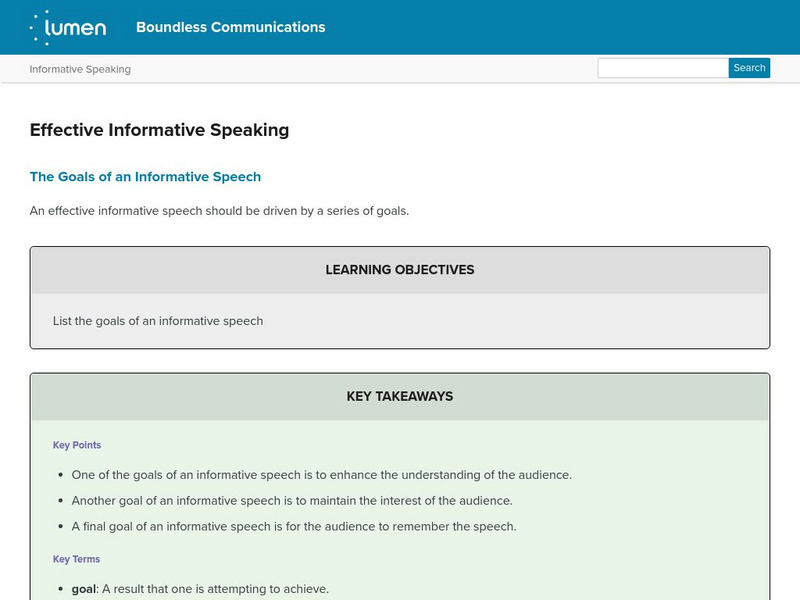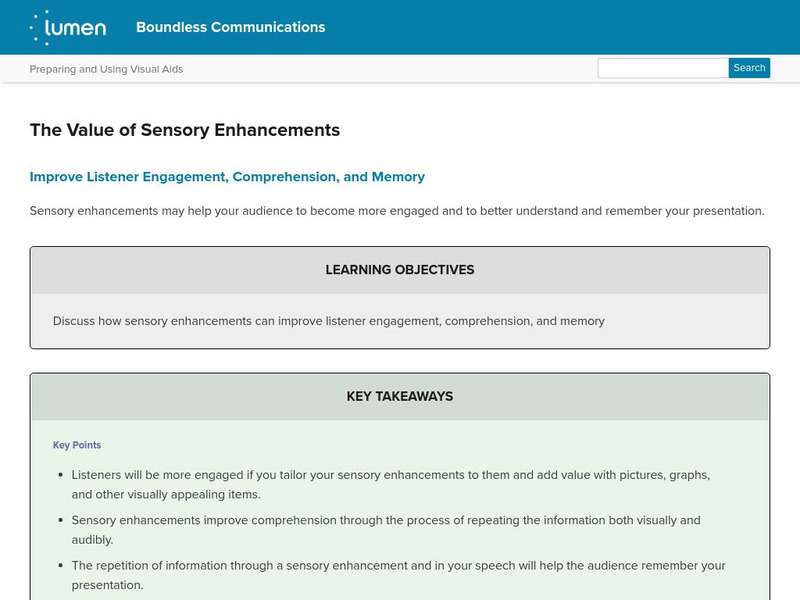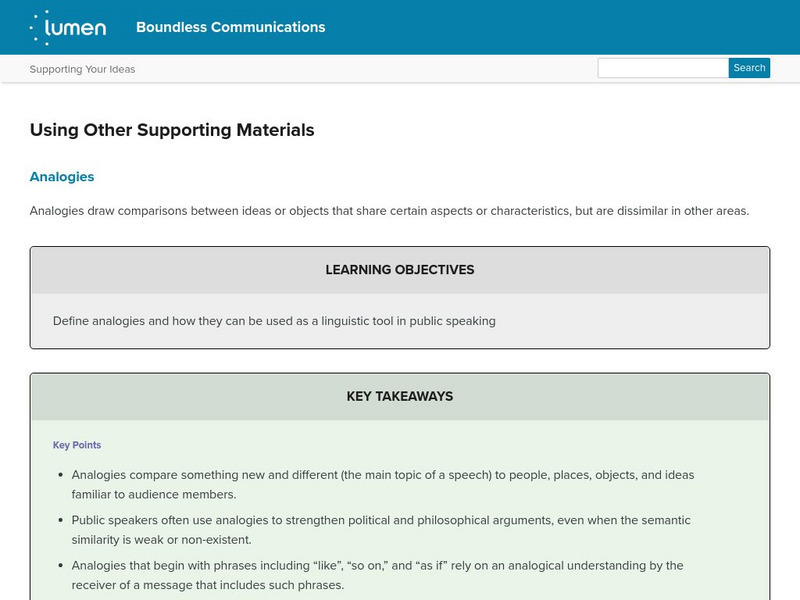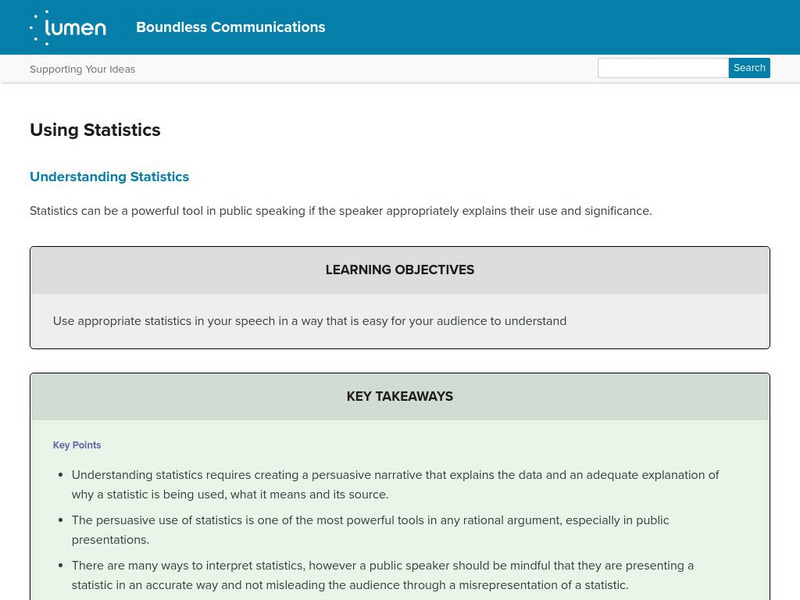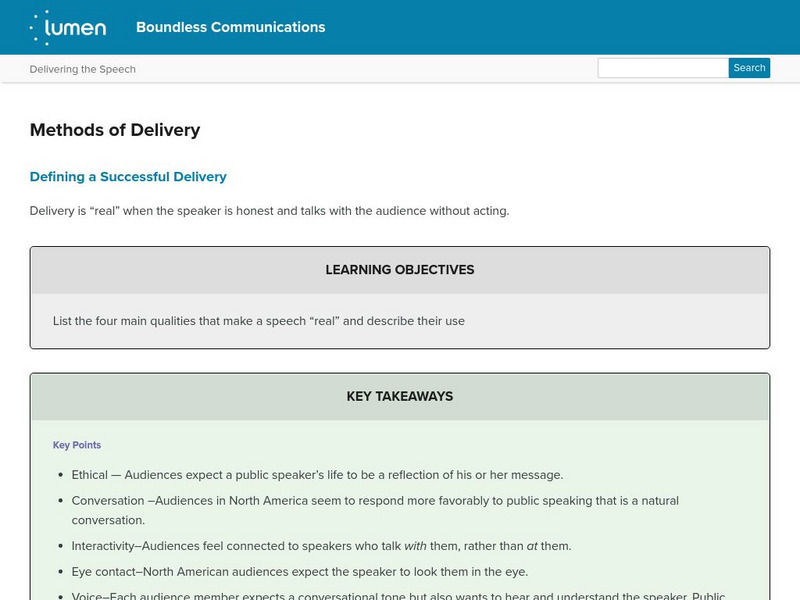Education Development Center
Education Development Center: Tv411: Parts of a Newspaper
Students click through a lesson about the parts of a newspaper and answer questions about the types of articles found in each section, headlines, and captions that would go with photographs. Links to related videos are also provided.
Education Development Center
Tv411: Reading: Parts of a Newspaper
A series of three activities help readers become familiar with parts of a newspaper, from sections to headlines and captions.
21st Century Schools
21st Century Schools: Critical Viewing Skills and Media Literacy
Understand media literacy as it relates to a student's ability to analyze, evaluate, critique and produce multiple media messages. Information and links to inspire students, teachers and all those who work with young people regarding...
Education Development Center
Tune in to Learning: Reading Charts and Graphs
Practice graph reading skills with these exercises and companion tutorials.
ReadWriteThink
Read Write Think: Scaffolding Comprehension Strategies Using Graphic Organizers
A three-part standards-based lesson in which students will use collaborative strategic reading to apply four reading strategies: preview, click and clunk, get the gist, and wrap-up. They will work in cooperative groups while scaffolding...
ReadWriteThink
Read Write Think: Oral Presentation Rubric [Pdf]
This reproducible resource provides an assessment rubric to be used with students' oral presentations. CCSS.ELA-Literacy.CCRA.SL.4
Other
First Grade Fun: Media Literacy
This module from a resident educator named Ms. Hernandez shares resources that explain how to discuss media images with their young children.
Texas Education Agency
Texas Gateway: Analyze Graphical Sources: Practice 2 (English I Reading)
Analyze the factual, quantitative, and technical data in graphs and charts.
Wisc-Online
Wisc Online: Avoiding Design Mistakes When Creating Visuals
Using visuals in a speech can enhance the speech and captivate the audience, only if used effectively. Review design errors and learn how to avoid them when choosing visuals for your speech. SL.11-12.5 Audio Visuals
Lumen Learning
Lumen: Boundless Communications: Learning How to Speak Publicly
This site provides a variety of ways for people learn how to speak publicly and the best practices in preparing and presenting speeches. SL.9-10.4 Presentation
Lumen Learning
Lumen: Boundless Communications: Contextual Factors to Consider
This lesson focuses on contextual factors to consider when analyzing your audience including physical contexts, values, beliefs, attitudes, and needs, audience opinion of you and your topic, and audience knowledge of your topic.
Lumen Learning
Lumen: Boundless Communications: Adapting to Your Audience
This lesson focuses on adapting your speech to your audience including analyzing your audience using direct observation, interviews, surveys, or Likert rating scales and then apply knowledge about the audience to adjust the message...
Lumen Learning
Lumen: Boundless Communications: Elements of Speech Communication
This lesson discusses the elements of speech communication including the speaker, message, types of channels, audience, and feedback.
Lumen Learning
Lumen: Boundless Communications: Helping Your Audience Listen More
This lesson focuses on helping your audience listen better by offering strategies such as read feedback cues, employ strategies for maintaining audience focus, use strategies to maximize audience understanding, build credibility, and...
Lumen Learning
Lumen: Boundless Communications: Effective Informative Speaking
This lesson focuses on how to present an effective informative speech including keeping in mind the goals, scope, audience, and connections to the speech.
Lumen Learning
Lumen: Boundless Communications: Presenting With Sensory Enhancements
This lesson focuses on the do's and don'ts of using visual aids.
Lumen Learning
Lumen: Boundless Communications: The Value of Sensory Enhancements
This instructional activity focuses on the value of using sensory enhancements in presentations including improving listeners comprehension, choosing the right visual aids, and preparing and understanding your visual aids.
Lumen Learning
Lumen: Boundless Communications: Types of Sensory Enhancements
This lesson plan focuses on the types of sensory enhancements and how to effectively use them. SL.9-10.2 eval & integrate sources, SL.9-10.5 Audio Visuals
Lumen Learning
Lumen: Boundless Communications: Using Other Supporting Materials
This lesson focuses on other materials used to support your speech including analogies, definitions, and a variety of visual aids. SL.11-12.5 Audio Visuals
Lumen Learning
Lumen: Boundless Communications: Using Statistics
This lesson focuses on using statistics in your speeches including understanding statistics, common misunderstandings of statistics, guidelines for helping your audience understand statistics, and using visual tools for incorporating...
Lumen Learning
Lumen: Boundless Communications: Principles of Organization
This lesson focuses on the importance of organizing your speech including critically thinking about the contents of the speech, the components of the speech, the patterns of organization to fit the different types of speeches, and...
Lumen Learning
Lumen: Boundless Communications: Main Points
This lesson focuses on choosing the main points of your speech based on your audience and purpose. It also discusses ordering and highlighting your main points using visual and textual cues and using a variety of examples.
Lumen Learning
Lumen: Boundless Communications: Methods of Delivery
This is a comprehensive lesson on four speech delivery methods and the advantages and disadvantages of each; it also discusses how to make your speech "real."
Lumen Learning
Lumen: Boundless Communications: Speaking in the Real World
This lesson focuses on providing practical tips for speaking in a non-academic setting such as a wedding, charity event, or interview.










